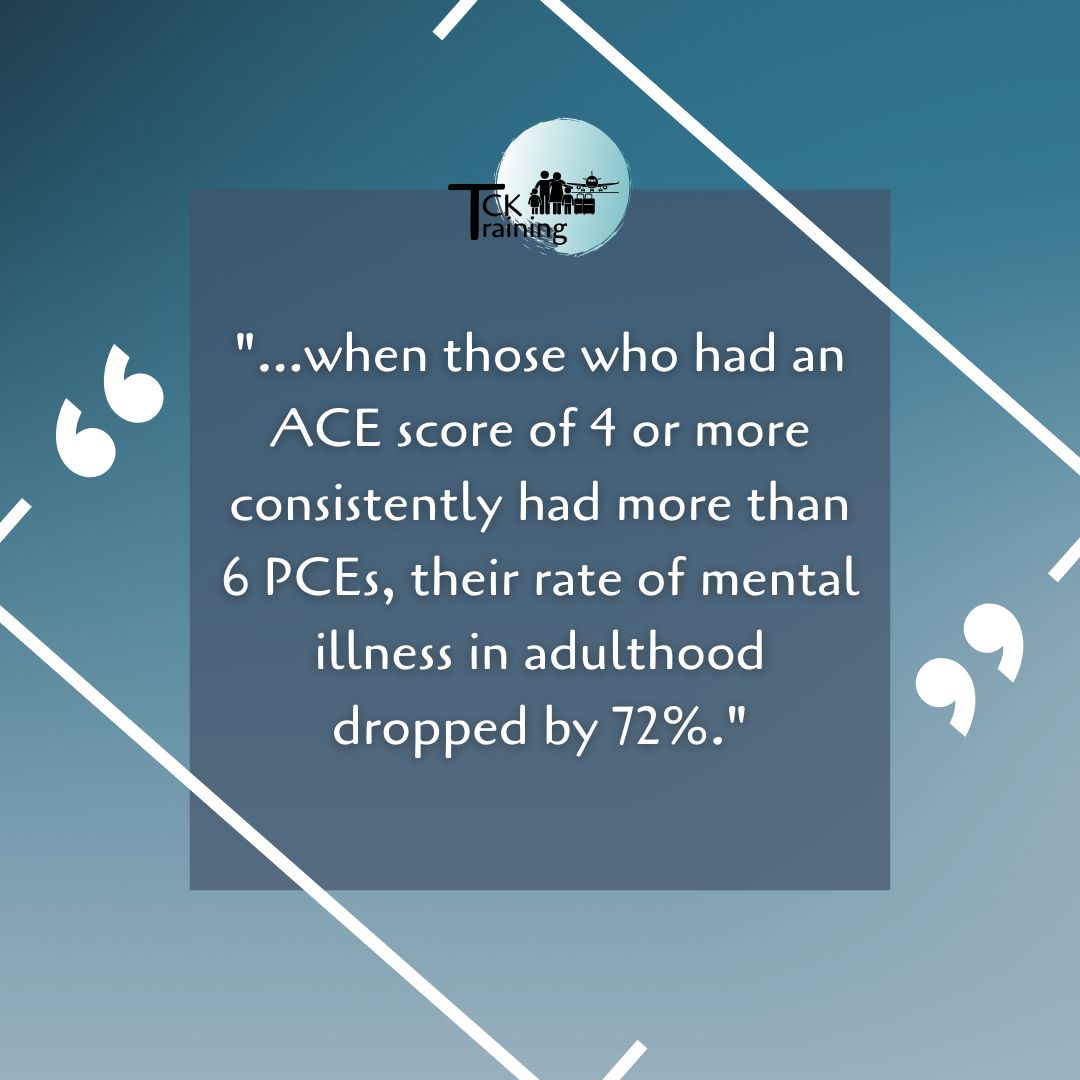Lauren Wells, FIGT member and Founder & CEO of Silver Sponsor, TCK Training, shares important new research highlighting the unique relationship TCKs have with both adversities and positive experiences.

By Lauren Wells, Founder & CEO, TCK Training
In 2021, TCK Training conducted a survey investigating ACE Scores and experiences of developmental trauma among Adult Third Culture Kids. Their primary objective was to get data on Adverse Childhood Experiences (ACEs) in TCKs; the secondary objective was to gain insights into other forms of developmental trauma experienced and witnessed by TCKs. In this article Lauren Wells shares more about their experiences and findings.
Cultivating Thriving TCKs: Risks and Hope
I planted a vegetable garden this year. In the past, my gardens have been limited to a small, above-ground rectangle that I filled with a couple of bags of store-bought soil. This year, however, I decided to go bigger. I planned out a 2x2 meter plot and began to do my research on preparing to plant. I naively thought it would be as simple as removing the grass and weeds from the area, making little holes for my seeds, and vois là - vegetables would abound! But, I discovered this plan was not likely going to be successful. There may be some hearty seeds that sprout, but it was clear that without some serious preparation, this garden would not do well. So, I invested in a hand tiller, vegetable garden food, compost, and topsoil.
Raising TCKs is a similar endeavor. Entering the TCK life without intentional understanding of the risks and prevention strategies make it challenging for TCKs to grow up resilient, reap the benefits of the TCK life, and ultimately be healthy in adulthood.

Working in TCK care for over a decade and being an adult TCK myself, I knew anecdotally many of the challenges that seemed to be prevalent in the lives of TCKs. I had noticed a correlation between those challenges in the developmental years and health in adulthood. As we started our research in 2021, we decided to use the Adverse Childhood Experience (ACE) framework to research those developmental challenges, not only because it is well researched around the world, but because there is also research on it's associated preventive factors called Positive Childhood Experiences (PCES). Our research sought to investigate the risk of high ACE scores among TCK populations so that prevention strategies can be implemented.
There are 10 factors that make up the ACE score and they fall in the categories of abuse, neglect, and household dysfunction. High ACE scores (considered to be a score of 4 or more) have been associated with higher risk of disease, depression, addiction, behavioral challenges, divorce, obesity, and even premature death. We hypothesized that TCKs would have higher ACE scores than monocultural individuals but were surprised by how significant that variance was. Our study (which can be read about in depth here: https://www.tcktraining.com/research/caution-and-hope-white-paper) showed that 20.9% of TCKs in our data set of 1,904 have an ACE score of 4 or more compared to the largest ACE study done on the American population that revealed that 12.5% had an ACE score of 4 or more. When we looked at TCKs who experienced high mobility (moving house 15+ times), the percentage jumped to 33.2%.
While researching gardening, I learned about factors that would inhibit plants from thriving, and I realized that my garden plot had many of them. In the same way, this research identifies that TCKs are at greater risk for higher ACE scores. But there is hope and it lies in this: there is already excellent research on how to promote thriving despite high ACE scores. We have access to PCEs research that provides specific protective buffers that can be put in place to mitigate the negative outcomes of high ACE scores.
These PCEs are:
-
Feeling that their feelings are heard and validated by their parents
-
Feeling physically safe in the home
-
Feeling their parents stand by them during difficult times and would choose them over their job/ministry/population of service, etc
-
Feeling supported by a peer group
-
Feeling a sense of belonging within a larger, multigenerational group
-
Having routines and traditions to look forward to
-
Feeling a sense of belonging in high school/secondary school
-
Having two non-parent adult relationships who take a genuine interest in them

Because of the unique nature of the TCK life, these PCEs often need to be creatively implemented and certainly need to be intentionally maintained. When they are, the outcomes for TCKs improve exponentially! It was found that when those who had an ACE score of 4 or more consistently had more than 6 PCEs, their rate of mental illness in adulthood dropped by 72%. Many other studies show drastic improvement of outcomes when PCEs are maintained.
Knowing the risk factors of planting TCKs in the soil of the globally mobile life doesn’t mean we shouldn’t do it. If we didn’t, we would miss out on the amazing opportunities and benefits of a globally mobile upbringing! But, because we know the risks, we should take care to cultivate the soil so that the outcomes are more likely to be healthy and favorable for the TCKs we love. By nourishing them with PCEs, they are more likely to thrive and build resilience in the environment of the Third Culture Kid life.

TCK Training teaches parents, organizations, companies, and schools about caring for TCKs in simple and practical ways, as well as providing all the tools needed. If that's something you'd like to know more about, they’d love to hear from you. Please follow them on social media (@tcktraining) or visit their website at www.tcktraining.com.
Thank you, TCK Training, for becoming an FIGT Silver Sponsor.